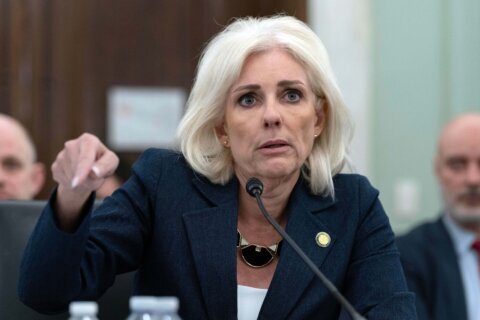U.S. Sen. Tim Kaine, who is not happy about the inclusion of a provision to greenlight a natural gas pipeline in the debt ceiling bill that would clear the way for its completion in Virginia, offered an amendment Thursday to pull the project.
The Democratic lawmaker said the provision is “completely unrelated to the debt limit,” and could set a dangerous precedent.
“I support improving the permitting process for all energy projects,” he said. “But Congress putting its thumb on the scale, so that one specific project doesn’t have to comply with the same process as everyone else is the definition of unfair and opens the door to corruption.”
Kaine said he was never told by anyone with the White House that the provision for the Mountain Valley Pipeline would be included in the legislation.
The $6.6 billion pipeline originates in West Virginia and would stretch into southwest Virginia. Its completion has been held up by various court rulings in the 4th U.S. Circuit Court of Appeals.
Sen. Joe Manchin, a West Virginia Democrat, has been a champion of the project and has made a variety of efforts in Congress to clear the way for the pipeline.
Kaine said he has no issue with Manchin, noting that his fellow Democratic lawmaker has been transparent about his desire to help complete the pipeline. But Kaine said he disagrees with Manchin and doesn’t believe that Congress should be interfering in the issue.
“Pipelines don’t get built in the air,” Kaine said. “You’ve got to take peoples’ lands.”
Kaine noted he hasn’t taken a specific position on supporting or opposing the pipeline itself. But he does have a problem with Congress trying to replace its judgment for fair administrative and judicial review.
It was not immediately clear if Kaine’s amendment would be taken up, as the Senate races to try to pass the debt limit legislation ahead of a June 5 default deadline.
Several other lawmakers are also proposing amendments on various issues, including defense spending.
The Senate can only take up a limited number of the amendments, or risk pushing up against Monday’s deadline. The House passed the legislation Wednesday night.
If any of the amendments were passed by the Senate, that would force the House to take another vote.
Since that would put Congress past the default deadline, it’s widely expected that any Senate amendments would be defeated. But they would allow senators to raise concerns about issues they feel need to be addressed.








